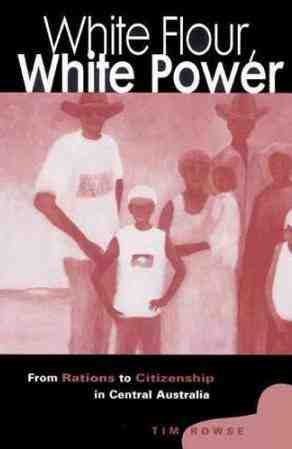-
This book focuses on the colonial practice of rationing goods to Aboriginal people, arguing that much of the colonial experience in Central Australia can be understood by seeing rationing as a fundamental, though flexible, instrument of colonial government. Rationing was the material basis for a variety of colonial ventures: scientific, evangelical, pastoral and the postwar program of "assimilation." Combining history and anthropology in a cultural study of rationing, this book develops a new narrative of the colonization of Central Australia. Contents: A theatre of stages; PART ONE; 1 Rationing the inexplicable; 2 Rationed actors; PART TWO; 3 Rural central Australia, 1914-40; 4 Town, cash and supervision; 5 'A Christian cannot be a parasite'; 6 The World War in town and hinterland; Conclusion: Indigenous welfare at mid-century; PART THREE; 7 'Assimilation'; 8 The crisis of managed consumption; 9 Settlements and families; 10 Alice Springs and its town camps; Continuities
This book focuses on the colonial practice of rationing goods to Aboriginal people, arguing that much of the colonial experience in Central Australia can be understood by seeing rationing as a fundamental, though flexible, instrument of colonial government. Rationing was the material basis for a variety of colonial ventures: scientific, evangelical, pastoral and the postwar program of "assimilation." Combining history and anthropology in a cultural study of rationing, this book develops a new narrative of the colonization of Central Australia. Contents: A theatre of stages; PART ONE; 1 Rationing the inexplicable; 2 Rationed actors; PART TWO; 3 Rural central Australia, 1914-40; 4 Town, cash and supervision; 5 'A Christian cannot be a parasite'; 6 The World War in town and hinterland; Conclusion: Indigenous welfare at mid-century; PART THREE; 7 'Assimilation'; 8 The crisis of managed consumption; 9 Settlements and families; 10 Alice Springs and its town camps; Continuities




